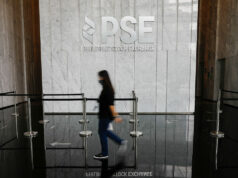South Korea free trade deal still expected before end of 2020 — DTI
FREE TRADE agreement (FTA) negotiations between the Philippines and South Korea are still due to conclude this year despite delays caused by the pandemic, the Department of Trade and Industry (DTI) said.
The DTI, before the lockdown, had aimed to conclude negotiations after April, to coincide with President Rodrigo R. Duterte’s invitation to South Korean President Moon Jae-in for a state visit. The negotiating teams missed their initial November 2019 deadline.
Negotiations stalled last year because the countries had not agreed on reduced tariffs for Philippine banana exports and South Korean auto exports. Both countries have since replaced their negotiating teams.
Trade Undersecretary Ceferino S. Rodolfo, who now leads the Philippine team, said that representatives of the two countries have been meeting online during the pandemic and will have another discussion in the second week of September.
He said in an online news conference on Aug. 21 that negotiations were again delayed this year after a change in leadership in South Korea’s negotiating team, as well as some travel restrictions due to the pandemic.
“We were initially looking at me going to Korea. Kaya lang… ang hirap ngayon lumabas from our side — lumabas at saka bumalik. So may mga practical difficulties. Because of that, na-delay ng konti ‘yung sa Korea (The South Korea trade deal was delayed because it was difficult to leave and to go back),” he said.
“Pero target pa rin natin this year matapos ‘yung FTA with Korea (The target for completing an FTA remains this year).”
Trade Secretary Ramon M. Lopez in February said that the banana and auto trade are “being worked out” and negotiations have improved.
Through the FTA, the Philippines aims to increase its exports of agricultural products, auto parts, organic and natural products, and design-driven products like garments and furnishings.
South Korea is one of the Philippines’ largest trading partners, according to the Philippine Statistics Authority. It was the Philippines’ sixth-largest export destination in 2019, with exports valued at $3.2 billion accounting for 4.6% of the value of total Philippine exports.
Top exports to South Korea include bananas as well as electrical and semiconductor products, while top imports include petroleum and integrated circuits. — Jenina P. Ibañez



